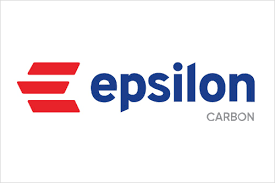Tuesday, 3 March 2026

The International Sustainability and Carbon Certification (ISCC) is a voluntary scheme that is applicable for the bioeconomy and circular economy for various sectors.
Epsilon Carbon, a global leader in manufacturing of high-quality Carbon Black, announced that its Karnataka, India manufacturing plant receives the prestigious International Sustainability and Carbon Certification (ISCC) Plus certification.
The International Sustainability and Carbon Certification (ISCC) is a voluntary scheme that is applicable for the bioeconomy and circular economy for various sectors. All kinds of biomass, waste and residues, non-biological renewables, and recycled carbon materials can be certified under ISCC PLUS.
This certification recognises Epsilon’s remarkable strides in building sustainable, traceable, and climate-friendly supply chains. Few key achievements include generating 11 per cent of energy from waste recovery processes, a 10 per cent reduction in greenhouse gas (GHG) emission intensity, a 3.3 per cent reduction in energy intensity compared to FY 2022-23, a 6 per cent reduction in water use intensity, and implementing a waste heat recovery plant that has contributed to a 15.7 per cent reduction in Scope 1 emissions and a 14 per cent reduction in Scope 2 emissions. These efforts reflect Epsilon Carbon’s comprehensive approach to emissions reduction, and energy recovery, aligning with the United Nations Sustainable Development Goals (SDGs) while solidifying the company’s role as a trusted provider of sustainable and circular raw materials to its customers.
Vikram Handa, Managing Director, Epsilon Carbon said “With increasing demand from both domestic & international customers for sustainable products, this ISCC PLUS certification for Epsilon Carbon gives us an opportunity to support our customers better. Epsilon’s focus on sustainability and circularity, and innovations toward a net-zero carbon emissions world, will provide sustainable products to the industry, further fulfilling our commitment to sustainability and circularity”.